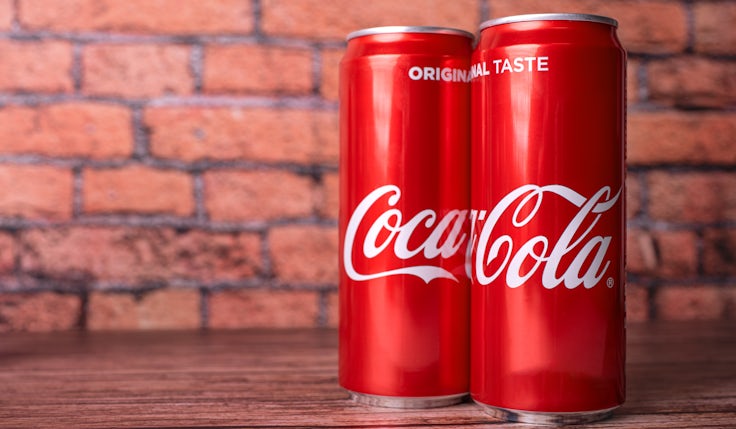Economic uncertainty gives challengers a ‘rare opportunity’ to ‘break in’ to categories, research finds
Speaking at EffWorks, Magic Numbers and VCCP presented the case for challenger brands to be aggressive while consumers tighten their pursestrings.
 Challenger brands have a strength their established competitors don’t in times of financial insecurity, according to data from VCCP and Magic Numbers. This is because when faced with financial pressure consumers are more sensitive to price fluctuations, which provides challenger brands with the means to “buy themselves into a category”.
Challenger brands have a strength their established competitors don’t in times of financial insecurity, according to data from VCCP and Magic Numbers. This is because when faced with financial pressure consumers are more sensitive to price fluctuations, which provides challenger brands with the means to “buy themselves into a category”.
Speaking at the IPA’s EffWork Global 2023 event today (10 October), the two firms explained why challenger brands outperformed in some cases, in some categories during the pandemic. More importantly for marketers, they elaborated upon what that insight means for challenger and established brands in the face of a further 12 months of a weakening global economy.
Grace Kite, Marketing Week columnist and founder of Magic Numbers, said challenger brands in a category of necessity like food have an opportunity to steal a march because “we have to eat”. She noted that pricing competition becomes intense, which benefits challengers.
“There’s a purchase there that’s up for grabs – but you’ve got to fight for it. [Consumers] are going to look at what your competitors are offering versus what you’re offering. And so you have to beat the competitor. But what that means on price is that it’s relative price that matters.”
The economy is going to be ‘meh’ in 2024 but your marketing plan can’t be
Essentially, she stated that the data demonstrates if your competition puts its prices up then you can “safely” follow suit. Kite stated that cash-strapped consumers’ focus on the relative pricing benefits of challenger brands.
“Number one, some purchases are safe, even if you do raise prices. Investing in your brand buys you into that category,” she said.
“People will be shopping around this year. And they’ll be researching way more than usual. So it’s a rare opportunity for challengers to break in.”
Breaking into categories
Moreover, she noted in that situation, advertising around necessities works wonders and delivers good ROI. She stated the uplift a brand gets from advertising in a recession is greater than otherwise, which “leads to a scrap” with competition. “But it’s one you can win by getting the relative price right and getting advertising working.”
 It was a view echoed by VCCP’s joint chief strategy officer Steve Taylor, who highlighted the work of confectionary brand Little Moons and Yorkshire Tea in using advertising to grow share within a category.
It was a view echoed by VCCP’s joint chief strategy officer Steve Taylor, who highlighted the work of confectionary brand Little Moons and Yorkshire Tea in using advertising to grow share within a category.
He stated: “FMCGs that advertise have more customers who are more tolerant or less sensitive – whichever way you want to look at it – to price rises.” He cited Little Moons in particular as a great example of using spend on social media during the pandemic as an example of how to break into a category.
Dynamic pricing is a marketing masterstroke – if you can sell it
However, outside the category of necessities, Kite noted that things are less clear-cut. The Magic Numbers data demonstrates 62% of consumers are considering stepping back from optional purchases over the course of 2024. That chimes with the insight from the latest GfK Consumer Confidence Barometer, which found consumers are still by and large wary to spend on major purchases.
Kite explained that, in such circumstances, the best course of action is to act as though your brand is in a recession “because your category is in a recession”.
Here she noted that while the received wisdom of not going wholly dark in terms of marketing spend is still true, it is incumbent upon brands to consider their comms strategy in light of what competitors are doing. “You need to do the maths. What happens is if others go quiet first of all, they’re a bit quiet so your voice might be heard better.”
However, the data demonstrated that while in a recession media prices generally fall, it is unlikely to be the same in 2024. She stated that “media isn’t that cheap at the moment and the idea that media will get cheaper [in] 2024 is one to treat with extreme caution”.





